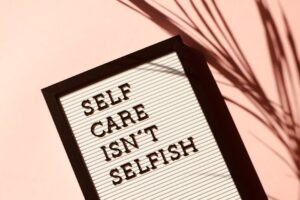In 2025, social media is practically woven into the fabric of teenage life. But is this constant connection a good thing? Studies show that teenagers spend an average of nine hours a day online, and a huge chunk of that is on platforms like TikTok, Instagram, and X (formerly Twitter). So, how does social media affect teens? It’s a complex question with no easy answers. This guide will walk you through the good, the bad, and everything in between.
Understanding the Impact: A Guide for Teens and Parents
First off, let’s be clear: social media’s effect on teens is not all negative. It’s a powerful tool that can connect them with friends, allow them to express themselves creatively, and even provide access to information and opportunities.
The Upside: Connecting and Learning
Building and Maintaining Relationships:Social media allows teens to stay in touch with friends, even those who live far away. They can share experiences, support each other, and feel a sense of belonging. Think of it as a virtual hangout spot.
Finding Communities: Teens can connect with others who share their interests, hobbies, or identities. This can be especially important for teens who might feel isolated in their real-life environments. Online communities can offer a sense of validation and acceptance.
Learning and Education:Social media can be a valuable source of information, news, and educational content. Teens can follow experts, learn new skills, and stay up-to-date on current events. I know a student who actually boosted his grades using online study groups he found on social media.
Creative Expression: Platforms like TikTok and Instagram offer teens a space to express themselves creatively through videos, photos, and writing. This can be a powerful outlet for emotions and a way to develop artistic skills.
The Downside: Challenges and Risks
Despite these benefits, the impact of social media on teens also has some serious downsides:
Cyberbullying:Social media can be a breeding ground for cyberbullying, which can have devastating effects on a teen’s mental health and self-esteem. The anonymity and reach of the internet can make cyberbullying particularly damaging.
Mental Health Concerns: Studies have linked social media use to increased rates of anxiety, depression, and body image issues among teens. The constant exposure to curated and often unrealistic portrayals of others’ lives can lead to feelings of inadequacy and low self-worth.
Sleep Disruption: Scrolling through social media before bed can interfere with sleep, leading to fatigue, poor concentration, and mood swings. The blue light emitted from screens can suppress melatonin production, making it harder to fall asleep.
Addiction and Distraction:Social media is designed to be addictive, with notifications and endless scrolling keeping users hooked. This can lead to teens spending excessive amounts of time online, neglecting other important activities like schoolwork, exercise, and real-life relationships.
Privacy Concerns: Teens often share personal information online without fully understanding the risks. This can make them vulnerable to identity theft, online predators, and other privacy violations.
Strategies for Healthy Social Media Use
So, how do we navigate these challenges and ensure that social media has a positive impact on teens’ lives? Here are some steps teens and parents can take:
1. Set Time Limits: Establish clear boundaries for social media use. Use built-in features on smartphones or apps to track and limit screen time.
2. Be Mindful of Content: Encourage teens to be critical of the content they consume online. Teach them to identify fake news, unrealistic portrayals, and harmful messages.
3. Promote Offline Activities: Encourage teens to engage in hobbies, sports, and other activities that don’t involve screens. This can help them develop a healthy balance in their lives and reduce their reliance on social media for entertainment and validation.
4. Talk About It: Have open and honest conversations with teens about the potential risks and benefits of social media. Create a safe space for them to share their experiences and concerns.
5. Monitor and Support: Pay attention to teens’ online activity and watch for signs of cyberbullying, mental health issues, or other problems. Offer support and seek professional help if needed.
6. Lead by Example: Parents should model healthy social media habits themselves. This includes setting time limits, being mindful of content, and prioritizing real-life relationships.
Common Mistakes to Avoid
Here are some common pitfalls to steer clear of:
Ignoring Warning Signs: Don’t dismiss changes in your teen’s behavior, mood, or sleep patterns. These could be signs that social media is having a negative impact.
Being Too Restrictive: While it’s important to set boundaries, being overly restrictive can backfire and lead teens to hide their online activity. Strive for a balance between guidance and autonomy.
Failing to Educate: Make sure teens understand the risks of social media, including cyberbullying, privacy violations, and mental health concerns.
Not Engaging in Open Communication: Create a safe space for teens to talk about their online experiences without fear of judgment.
Expert Insights
According to the American Psychological Association, excessive social media use can contribute to feelings of social isolation and loneliness. It’s important to foster real-world connections to combat this.
Key Takeaways
Social media can be both a blessing and a curse for teens.
It’s crucial to set boundaries, promote healthy habits, and engage in open communication.
Be mindful of the potential risks and seek help if needed.
FAQs about Social Media and Teens
How does social media affect teens’ self-esteem?Social media can negatively affect self-esteem by exposing teens to unrealistic comparisons and fostering a culture of constant self-evaluation.
How does social media affect teens’ mental health?
Excessive social media use has been linked to increased rates of anxiety, depression, and body image issues in teens.
How does social media affect teens’ sleep?Social media use before bed can disrupt sleep patterns due to the blue light emitted from screens and the stimulating nature of the content.
How does social media affect teens’ relationships?Social media can both strengthen and weaken relationships. It can facilitate connections but also lead to misunderstandings and conflicts.
What steps can parents take to help their teens use social media safely?
Parents can set time limits, monitor activity, educate teens about risks, and promote open communication.
Ultimately, social media’s influence on teens depends on how it’s used. By promoting healthy habits, fostering open communication, and being mindful of the potential risks, we can help teens navigate the online world safely and responsibly.
For further reading, check out resources on social media and mental health from the National Institute of Mental Health (NIMH) and Common Sense Media for age-appropriate social media guidelines.
The social media landscape is constantly evolving. Stay informed, stay engaged, and empower the teens in your life to use these powerful tools wisely. I encourage you to share this guide with other parents and teens. Let’s work together to create a healthier social media environment for everyone. Leave a comment below with your thoughts and experiences!

















